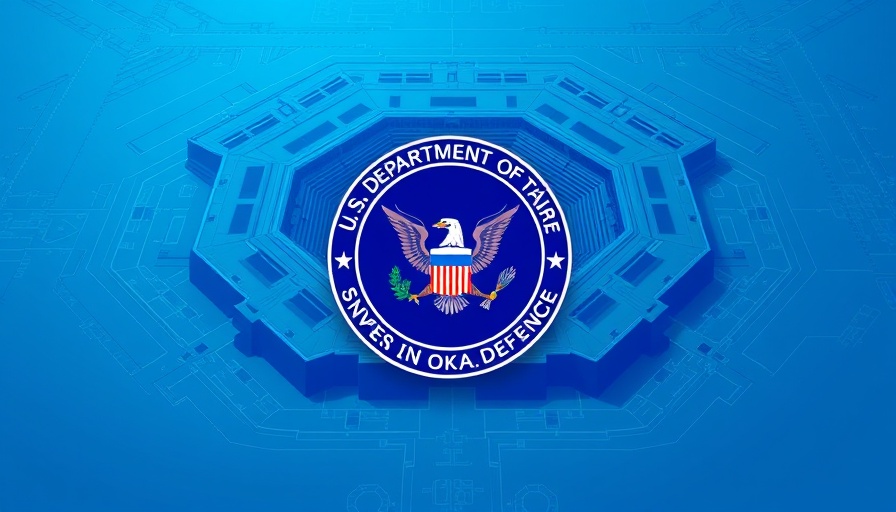
The Legal Battle That Could Reshape Drone Innovation
The ongoing lawsuit between Red Cat Holdings’ Teal Drones and Vector is set against the backdrop of more than just a simple corporate dispute; it poses significant implications for the relationships between the U.S. Department of Defense and the innovation ecosystem. Filed in Utah, the case echoes with whispers that reach the halls of Washington, emphasizing that the stakes are far higher than they appear at first glance.
Understanding the Implications of the Dispute
Vector's CEO, previously entrenched in the Pentagon's strategic oversight, raises uncomfortable questions about the integrity of intellectual property (IP). Accusations claim that Vector may have engaged in industrial espionage by allegedly touring Teal's facilities. If these allegations hold water, it might not only damage Vector's reputation but could also undermine trust in the entire defense innovation system.
The duality of innovation and trust, especially in defense, calls into question whether government officials can retain the fidelity necessary to protect proprietary data shared by companies. The accusations in this highly publicized case are more than claims; they threaten the very framework through which the Department of Defense engages with private sector innovators.
What If Trust Shatters?
Should Red Cat prevail, the fallout could ripple through the entire defense industry. We must ponder: if a former government official believed that accessing sensitive information was justifiable for commercial gain, what are the implications for the future? This goes beyond a corporate rivalry — we're potentially witnessing a crisis of trust that could deter innovators from working with the Pentagon altogether.
Future Trends in Defense Innovation
The market’s response will be crucial. New players may become hesitant to share their groundbreaking technologies, fearing that their proprietary information could be mishandled. For an industry that thrives on collaboration and innovation, this hesitation could stymie advancements that have far-reaching implications for both national security and technological progress.
As defense contracts continue to evolve towards more dynamic private-sector partnerships, we now face the need to evaluate and establish stringent measures that ensure trust is upheld. Focusing on transparency could be key in rebuilding confidence among innovators.
What Should Innovators Consider?
This situation underscores the importance of protective measures when engaging with defense stakeholders. Startups and established companies alike must implement legal frameworks to safeguard their technological developments. As the legal proceedings unfold, it becomes imperative for innovators to remain vigilant about their intellectual property and to thoroughly vet the partnerships they pursue with government entities.
Wrapping Up: The Road Ahead
As this court case continues, all eyes will be on the outcome and how it reshapes the landscape of drone technology and defense partnerships.
For individuals and companies involved in the tech and defense sectors, it would be prudent to keep abreast of the developments in this case as it has broader implications for trust and collaboration in innovation. The approach taken by the court may not only influence the parties involved but also set a precedent for how future IP disputes are navigated in this sensitive sector.
Take Action: As industry professionals, stay connected with developments in this case to ensure you’re prepared for potential shifts in the defense technology landscape. Understanding these complexities will serve you well in safeguarding your innovations.
 Add Row
Add Row  Add
Add 




Write A Comment